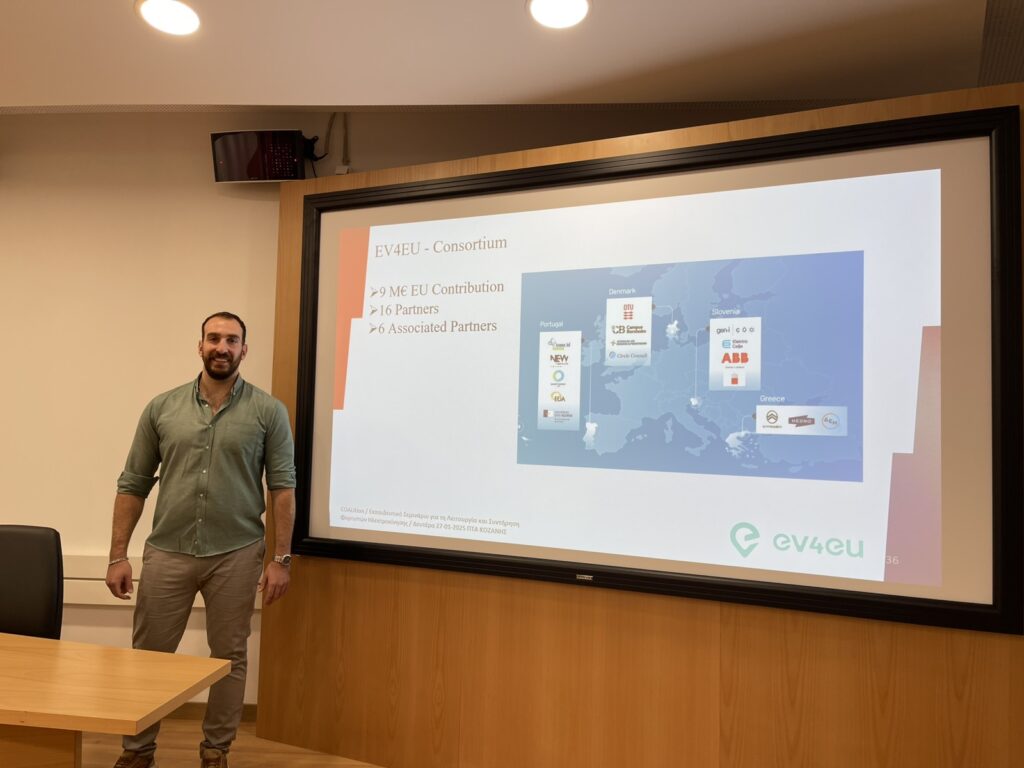On January 27-28, 2025, PPC researcher Vasileios Melissianos represented the EV4EU project at the COALition project workshop at the Centre for Research & Technology Hellas, Ptolemaida, Greece. As a partner in both projects, PPC remains committed to supporting the transition to clean energy, actively collaborating with initiatives that share the same vision.
The workshop provided a valuable platform to engage with a diverse audience, including computer and mechanical engineers, COALition researchers, external experts, and former lignite-fired power plant workers. During the session, PPC presented key findings from the EV4EU project, focusing on groundbreaking advancements in electromobility, battery technologies, and EV chargers with V2X capabilities.
A highlight of the session was the presentation of the Greek Demo of the O-V2X-MP platform, showcasing its purpose, features, and future developments.
“The EV4EU presentation focused on the Greek Demo attracted significant interest from the audience, particularly regarding its EV user functionalities and strategic charger selection approach. Many participants were interested in knowing more on how the platform optimizes charging decisions and enhances user experience. This workshop played a key role in disseminating valuable information about the EV4EU project”, said PPC researcher Vasileios Melissianos.

Launched in 2023, the COALition project aims to develop a unified strategy for sustainable energy across three transitioning regions in the EU: Western Macedonia (Greece), Centru (Romania), and Southeastern Bulgaria. These regions, classified as widening areas, are working to establish regional excellence hubs that will define shared priorities and action plans, following a bottom-up, multi-stakeholder participatory approach.
During the COALition workshop, PPC presented the latest advancements in the Greek O-V2X-MP platform Demo. The session covered key platform updates, including enhanced route selection, charging time estimation, charging load prediction, and real-time capacity and tariff insights. The introduction of a Weather Map alongside the ChargePoint Map, as well as new notification features for price announcements, was also highlighted, improving user experience and session planning.
A deep dive into the Administrator Interface showcased the newly structured Admin Tools, which expanded from two to six categories with 20 subservices. These updates enable CPOs to better manage charge points, chargers, tariffs, transactions, charging profiles, and user accounts. The KW volume prediction tool was also presented, offering data-driven insights into energy demand. Additionally, the new profile management features allow both CPOs and EV users to configure charging and tariff preferences and handle charging tags with greater flexibility.
On the infrastructure side, the workshop featured a key milestone in the Greek Demo—the successful charging of the newly acquired Citroën EV via OCPP communication with the Greek platform.


Comments are closed.